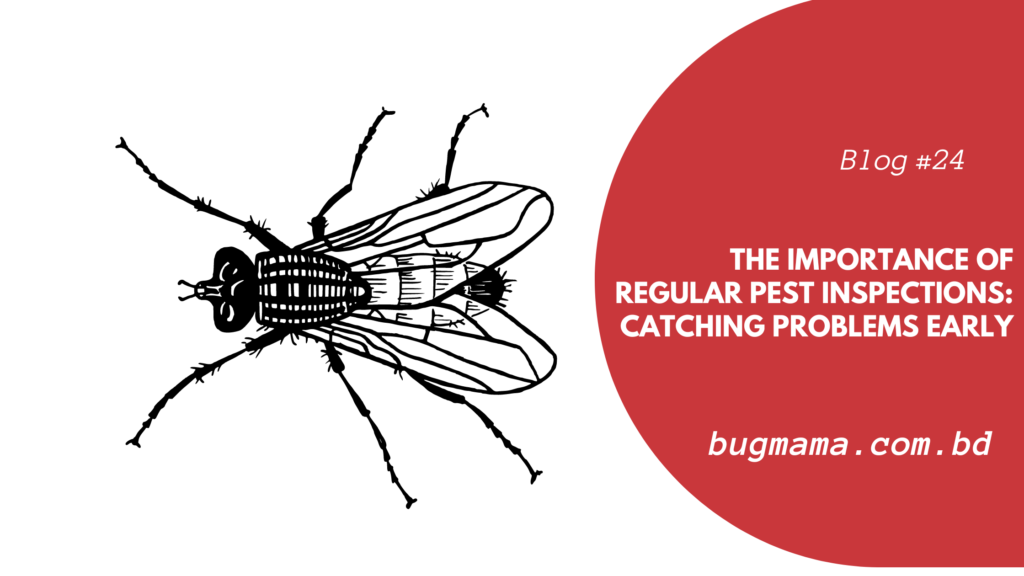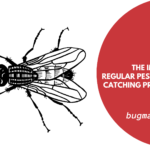
Introduction
Pests such as termites, rodents, cockroaches, and bed bugs can invade our living spaces without warning, causing considerable damage and posing health hazards. Regular pest inspections act as a proactive measure to identify these issues early on, preventing them from escalating into larger problems.
The Unseen Threat of Pests
Pests are often hidden from plain sight, making their presence difficult to detect until the damage is extensive. Termites, for instance, can silently devour wooden structures, compromising the integrity of a building. Rodents not only damage belongings but also carry diseases. Bed bugs can disrupt sleep and lead to skin problems. The silent invasion of these pests highlights the need for frequent inspections.
The Benefits of Regular Pest Inspections
Early Problem Detection
One of the primary advantages of routine pest inspections is early problem detection. Trained inspectors can identify signs of infestation that might go unnoticed by homeowners. Catching these issues at an early stage can save homeowners significant amounts of money on repairs.
Preventing Structural Damage
Certain pests, like termites, can cause severe structural damage. Regular inspections can pinpoint the presence of these pests and allow for timely treatments, safeguarding the structural integrity of your property.
Protecting Health and Hygiene
Pests are notorious carriers of diseases and allergens. Rodents and cockroaches, for example, can spread harmful bacteria, posing risks to your health and that of your family. Regular inspections help in identifying and eliminating these threats, ensuring a safe and healthy living environment.
DIY vs. Professional Inspections
While DIY pest inspections are possible, they might lack the expertise and tools that professional inspectors possess. Professionals can identify subtle signs of infestation that a layperson might overlook, making their services essential for thorough inspections.
What to Expect During a Pest Inspection
A typical pest inspection involves a comprehensive examination of the property, both inside and outside. Inspectors will look for signs of infestation, damage, and potential entry points for pests. They will also assess the environment for conditions conducive to pests.
How Often Should You Conduct Pest Inspections?
Ideally, homeowners should schedule pest inspections annually. However, high-risk areas or properties with a history of infestations may require more frequent inspections.
Signs of Pest Infestations
Different pests leave behind distinct signs of their presence. Knowing what to look for can help homeowners identify infestations early.
Termites
- Discarded wings
- Hollow-sounding wood
- Mud tubes on walls
Rodents
- Gnaw marks on furniture and wires
- Droppings in hidden corners
- Nests made from shredded materials
Cockroaches
- Foul odor
- Droppings resembling coffee grounds
- Shed skin
Bed Bugs
- Reddish stains on bedding
- Tiny white eggs and eggshells
- Itchy bite marks on the skin
Pest-Proofing Your Home
Beyond inspections, pest-proofing your home is essential to prevent infestations. Seal cracks, store food properly, and eliminate standing water to make your home less appealing to pests.
The Role of Pest Inspections in Real Estate
Pest inspections are crucial in real estate transactions. Buyers and sellers both benefit from knowing the pest status of a property, ensuring transparency and informed decisions.
Hiring Pest Control Services
Professional pest control services offer tailored solutions for different infestations. Their expertise and experience can effectively eliminate pests and prevent their return.
The Financial Impact of Neglecting Inspections
Neglecting pest inspections can lead to costly consequences. Repairing structural damage or addressing health issues caused by pests can take a toll on your finances.
Pest Inspections in Commercial Spaces
Pests aren’t limited to homes; they can infiltrate commercial spaces too. Regular pest inspections are crucial for businesses to maintain a clean and safe environment for employees and customers.
FAQs
How often should I have my home inspected for pests?
It’s recommended to schedule annual pest inspections. However, properties with a history of infestations may need more frequent checks.
Can I do pest inspections myself?
While DIY inspections are possible, professional inspectors are better equipped to identify subtle signs of infestation.
Are pest inspections necessary for commercial spaces?
Yes, pests can affect commercial spaces too, making regular inspections essential for maintaining a clean and safe environment.
What are some common signs of termite infestation?
Discarded wings, hollow-sounding wood, and mud tubes on walls are typical signs of termite presence.
How can I pest-proof my home?
Seal cracks, store food properly, and eliminate standing water to make your home less attractive to pests.
Conclusion
Regular pest inspections are a proactive approach to safeguarding your property, health, and finances. Detecting pest problems early can prevent extensive damage and reduce the risk of health issues. Whether it’s your home or business, investing in regular pest inspections is a wise decision.
